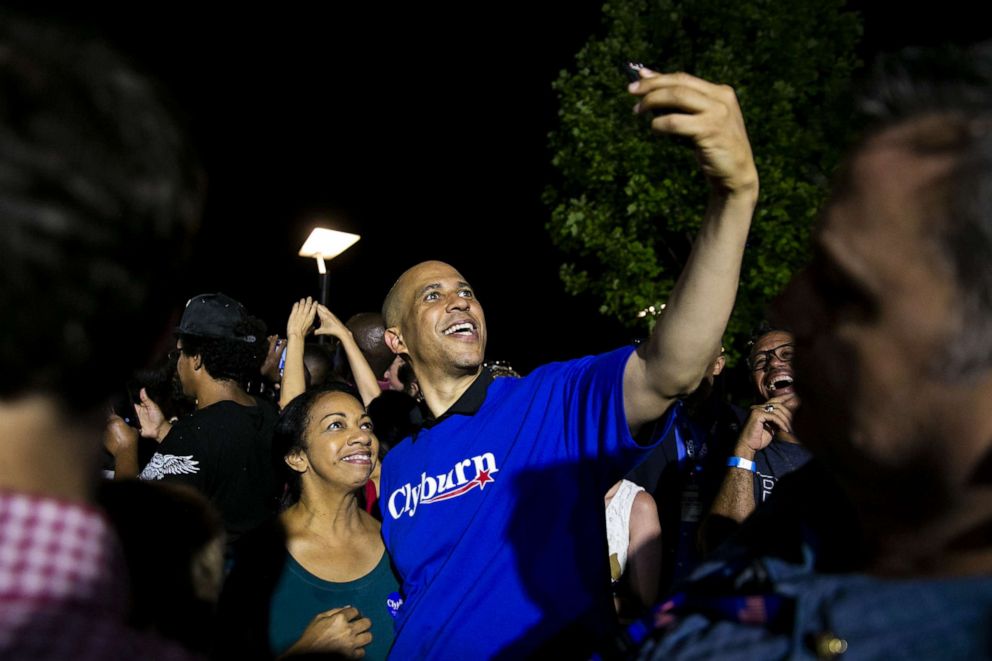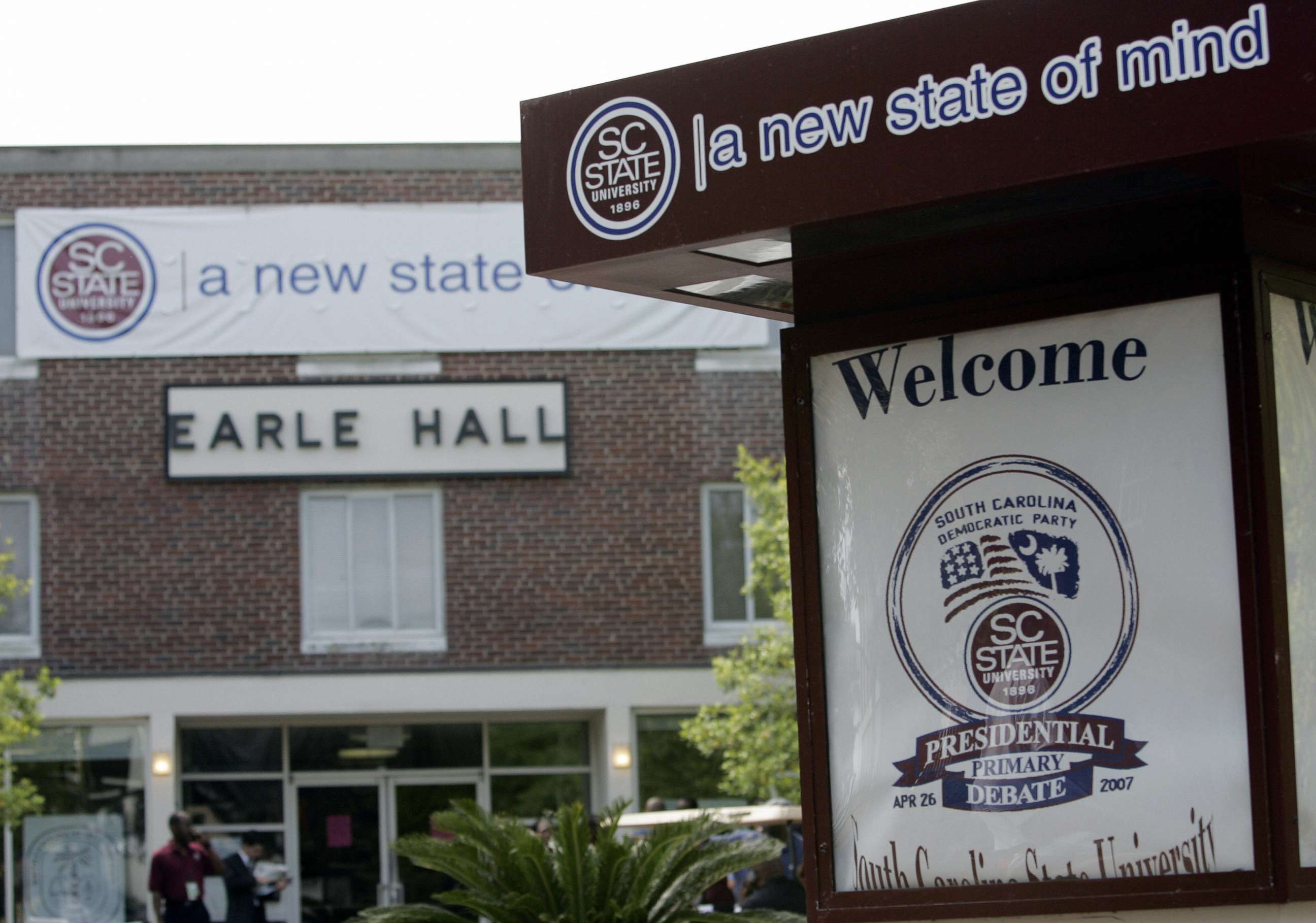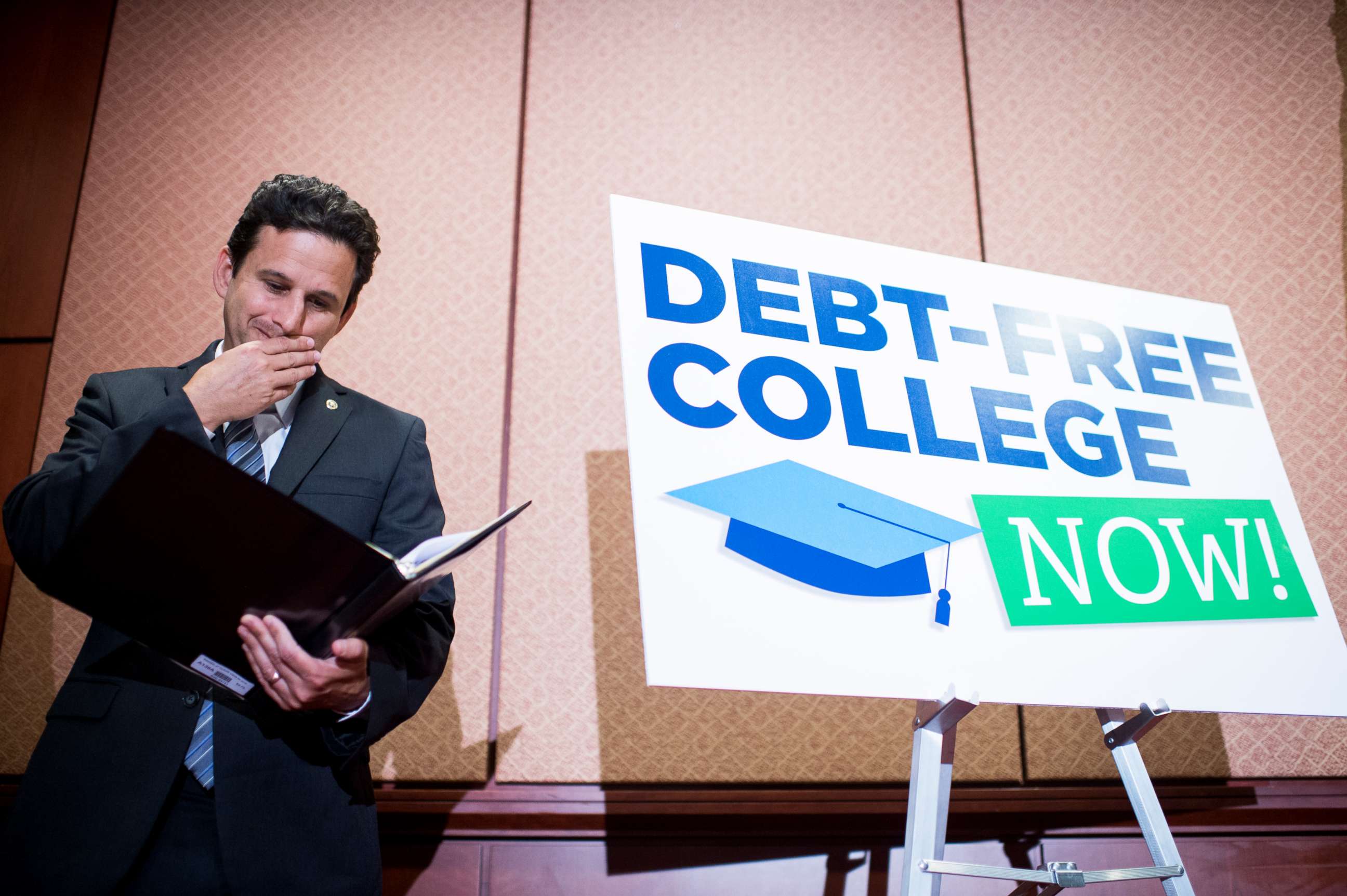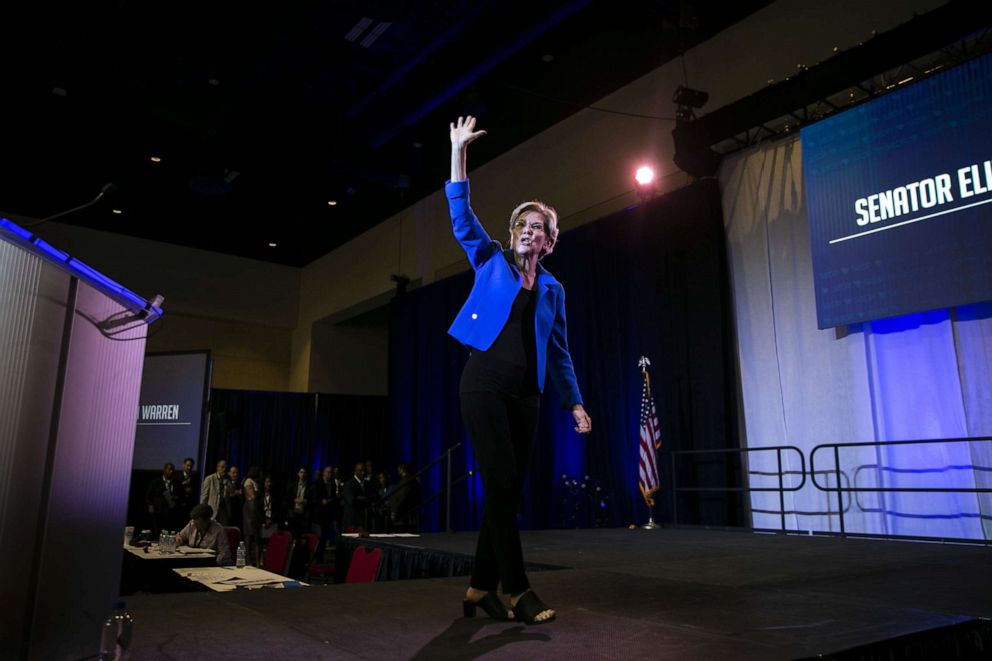HBCU students sound off on 2020 candidates' student loan debt relief plans
Many young voters have yet to decide who they support in the 2020 election.
ORANGEBURG, South Carolina -- Students at historically black colleges and universities such as Charles C. Patton, the sixth "Mr. South Carolina State University", say they'll only cast ballots for a 2020 presidential candidate willing to "come here and speak to us.”
Like many young voters, the 22-year-old physics major who acts as an ambassador for his HBCU campus, has not yet decided which presidential candidate he's supporting.
"We've had Beto O'Rourke come to our campus, we've had Cory Booker, we've had Kamala Harris, we've had Mayor Pete [Buttigieg]," Patton said, listing off the names of candidates who have held campaign events at his school.

The influx of 2020 candidates flocking to South Carolina to court black voters -- a demographic making up more than 60% of the Democratic electorate in the primary election -- gives students a front row seat to speak with the presidential hopefuls about the issues that matter most to them.
The Palmetto State has some of the fastest growing student debt in the country, jumping between $5.6 billion and $23.1 billion from 2008-18, according to an Experian report that came out earlier this year.
Nationally, the average white student loan borrower has roughly $30,000 of student loan debt, while African-Americans have an average of nearly $34,000, according to data from the Center for Responsible Lending.
The disparities only grow after graduation. A 2017 report from the Brookings Institution found student debt among black college students to be at "crisis levels. The report showed black students graduating with a Bachelor's degree were defaulting at five times the rate of their white counterparts.

As historically black colleges and universities continue to struggle with limited federal funding, students attending these institutions -- with families that tend to have a lower income -- are left with limited financial resources, causing them to amass larger amounts of debt in hopes that higher education will lead to a more successful future.
In a focus group with ABC News, Patton was one of six student leaders at South Carolina State to sound off on the recent visits from the 2020 candidates, expressing their need for a candidate who will be a champion for one of their top issues: student loan debt.
"We are getting hit the hardest," said Shamari Knighton, an African American first-generation college student majoring in biology and acting as first lieutenant to Mr. South Carolina State. Despite having already amassed around $82,000 in debt, Knighton said he still plans to attend grad school, potentially leaving him with upwards of $100,000 of loans.
"I didn't come from money, so I didn't have a lot of money saved up." Knighton said, acknowledging that with few scholarships under his belt, student loans were his only option.
"I wasn't as fortunate to have my mother know that much about [the loan process]. She worked two and three jobs to take care of me and my siblings," he explained. "She's not tech savvy, so she didn't know about the application process so I kind of went through that alone."
It's that same financial trajectory that leaves South Carolina State senior Jaelyn McCrea feeling unsure about pursuing her dreams of going to film school after graduation. She told ABC News that she would like candidates to focus on financial literacy in combination with debt relief.
"We need mandatory financial literacy for high school students," McCrea said, flagging a hole in the Democratic solution to address student loan debt among low income students.

"Some people are blessed and go to school where they have those opportunities, some people aren't," she said. "We need to make it a point to reach every school -- low income to private school -- to make sure every student is educated on scholarships, financial aid and what student loans really are. Start early [so students] aren't stuck when they get to college."
Several 2020 hopefuls have proposed comprehensive education reform, with debt relief detailed as a top priority. Both Booker, the senator from New Jersey and O'Rourke, a former Texas congressman, have detailed plans to forgive all student loan debt for public school teachers; while businessman Andrew Yang, former Housing and Urban Development Secretary Julian Castro and former Vice President Joe Biden have pledged to provide income-based student loan refinancing.
Massachusetts Sen. Elizabeth Warren met with student's privately before she took the stage during a student debt town hall on Wednesday Oct. 9, promoting her own student loan bill. Her proposal, co-sponsored by South Carolina Rep. James. Clyburn, would make four-year colleges and universities free and provide student debt relief for over 42 million Americans, eliminating up to $50,000 of student loan debt for borrowers who have an annual income of less than $100,000.

"One of the things that I like about Elizabeth Warren is that she's acknowledging the problems, but she's also backing them up with realistic solutions," said Richlyn Williams, a sophomore majoring in speech pathology and audiology who participated in the discussion.
Vermont Sen. Bernie Sanders proposed his own ambitious plan to provide universal higher education and forgive all $1.6 trillion of student loan debt, but SCSU students who participated in the focus-group were not confident in the proposal.
"I like the idea, but I think it's been a pattern with Sen. Sanders to have these grandeur plans to certain things, but it doesn't feel rooted in reality," Patton said. "[But] I appreciate his passion and his yearning to fix a lot of things."
Patton said while he supports Sanders' agenda, he isn't sure the senator's plans to achieve them would receive the necessary support from Congress.
"Right now, we do not have time for someone to give us promises while not seeing actual steps to move towards solutions, especially going against [President Donald] Trump in the 2020 election," he said. "We need to go with a candidate that that we can actually get behind with stuff that is rooted in reality."




